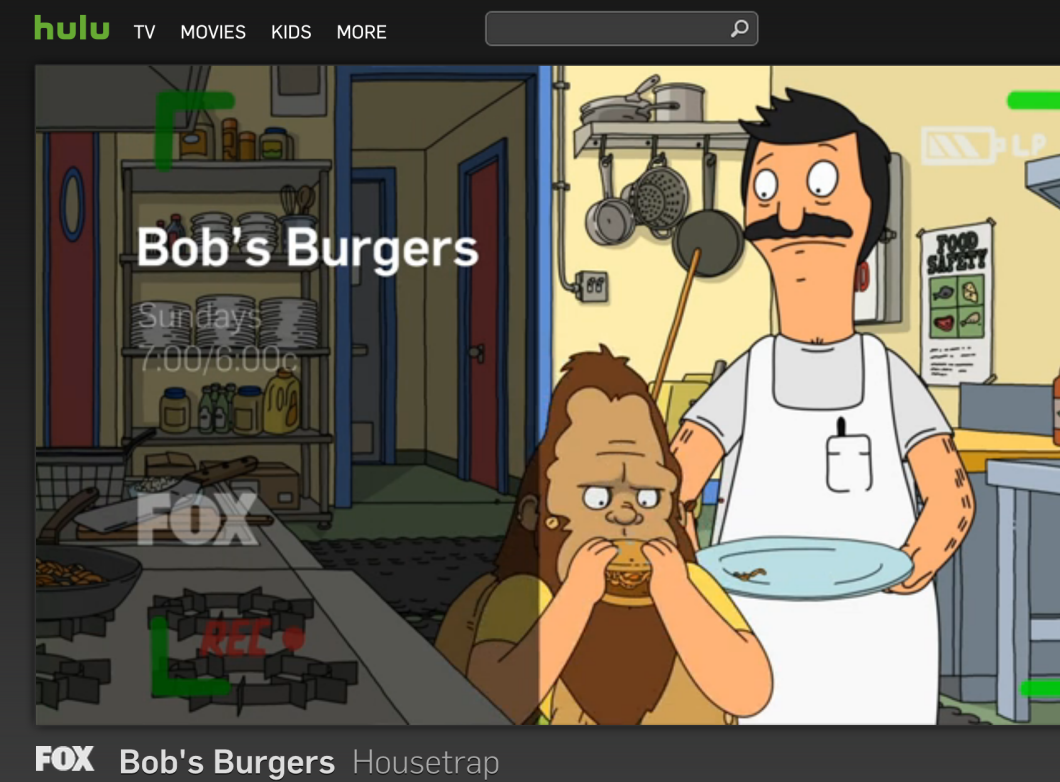Hulu Playing Nice With Broadcasters In Battle To Beat Netflix

When Bob’s Burgers runs on Hulu, it includes a pre-show bumper telling viewers when to watch the show live on TV. When you watch Bob’s on Netflix, the network is not referenced at all.
First, have you ever noticed how most broadcast networks don’t make the full current season of a show available for on-demand customers or for streaming through their own sites? It’s usually just a few of the most recent episodes.
This is a practice called “stacking,” and it’s one that Netflix and Amazon approve of because it means that a TV viewer can’t just go and watch a whole season online — at least until it’s on one of their services.
But the Wall Street Journal reports that when FOX decided to put its entire first season of the hit show Empire on cable companies’ on-demand platforms, Netflix wasn’t too thrilled. The streaming service said that this free availability of the show made it less valuable for a subscription service and sought a discount on the streaming license.
Hulu — which is jointly owned by Comcast (NBC), Disney (ABC), and 21st Century Fox, the News Corp spinoff that includes the FOX TV network — not only didn’t have a problem with stacking the show, it also agreed to pay more than Netflix for Empire, notes the Journal.
But the service isn’t just winning new content by paying more or being broadcaster-friendly about on-demand access, it’s doing something else that Netflix refuses to do: Give credit to the network a show originally airs on.
For example, if you watch episodes of popular FOX animated show Bob’s Burger on Netflix, the only time you’ll see the “Fox” named mentioned is at the end of the credits, only because the company’s studio produces the show. But if you watch Bob’s on Hulu, you’ll not only get a pre-show bumper advertising FOX, but then a reminder telling you when you can watch the show on FOX.
Even though Netflix has helped heavily serialized shows like Mad Men, Breaking Bad, and Lost gain audiences by allowing new viewers to play catch-up, the service has repeatedly stated that it is not in the business of promoting TV networks, many of whom don’t directly produce the shows they air.
But Hulu CEO Mike Hopkins tells the Journal that “We look at network brands as a benefit to us.”
And the co-chair of the Fox Television Group says that Hulu has “accepted the notion that the bigger we can build the show, the better it is likely to do on Hulu, not the opposite.”
Hulu’s biggest obstacle to getting subscribers appears to be its insistence on running ads. Unless Netflix, which has been steadfastly against the idea of interrupting its content for ad breaks, changes its tune, we have a hard time imagining Hulu gaining the same size audience.
Want more consumer news? Visit our parent organization, Consumer Reports, for the latest on scams, recalls, and other consumer issues.

